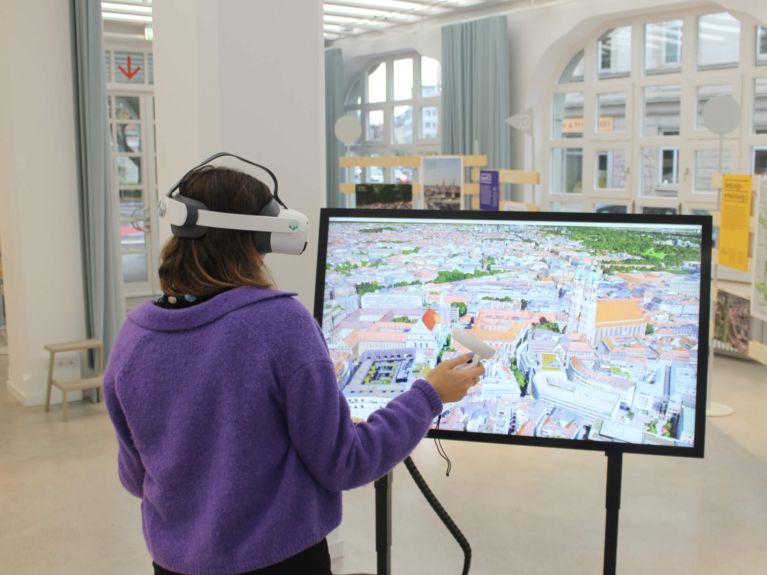How the digital transformation is making cities more sustainable
Digitisation entails many opportunities for sustainable and future-proof smart cities – the German government is supporting this transformation.

Cities are changing all the time. And when new houses, streets, squares and parks - or indeed entire neighbourhoods - are being planned and designed, all kinds of very different questions arise: What impact will the changes have on the urban climate? How barrier-free will the streets be? Or indeed: How can energy efficiency be improved? How can the best possible network of nurseries and childcare facilities be created?
Digital twins to help with city planning
To find answers to these questions, city planners in Germany are also being helped by digital twins. These are digital models of cities, enabling various “what if” scenarios for sustainable, liveable and future-proof cities to be played through. “Before we set anything in stone, we can first use a virtual model to test out what will happen,” is how Nora Reinecke, the head of the Connected Urban Twins project, describes one of the advantages of this approach in a video.
Three of Germany’s major cities, Hamburg, Munich and Leipzig, are collaborating on the project to drive forward the development of digital twins for towns and cities. The idea is to improve planning with the aid of artificial intelligence and virtual reality technology, and also to use the virtual models to involve citizens to a greater extent in the planning and design processes.

The large-scale project is one of 73 selected smart cities model projects. With this funding programme, the German government wants to support small and big cities with using digital solutions to evolve – for example with respect to the impacts of climate change or the revival of inner cities. The Federal Ministry for Housing, Urban Development and Building has supported the projects with more than 800 million euros since 2019.
German government supports smart cities at home and abroad
How cities of the future will look and what role digitisation will play in this context are questions of interest not only to Germany. Many cities around the world are facing similar challenges - and can therefore learn from one another. This is where the International Smart Cities Network (ISCN) comes in. Alongside Germany, its core member countries include Brazil, Mexico, Peru and India. The goal is for cities to use the network to share knowledge about and experience of the digital transformation.

